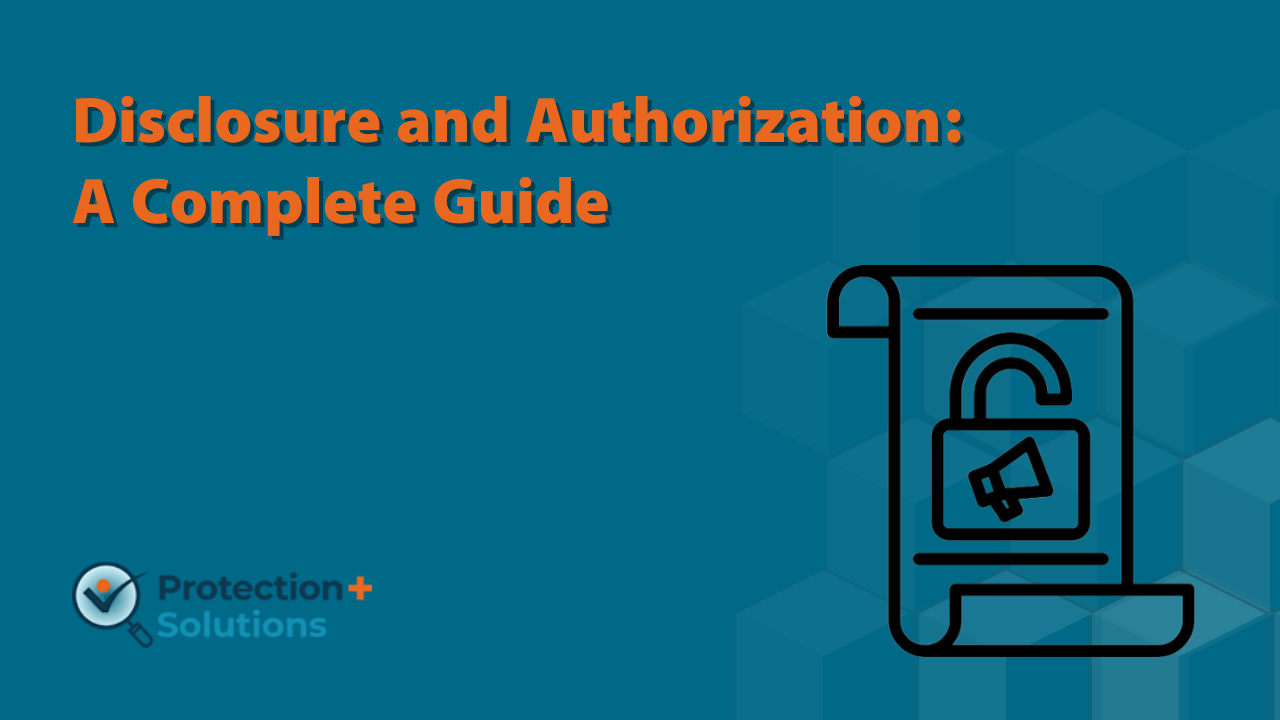Disclosure and Authorization: A Complete Guide

When you hear the words disclosure and authorization, they might sound like fancy legal jargon. But in reality, they affect almost every aspect of our daily lives—from signing up for a new job to applying for a credit card or even just visiting a doctor. Understanding these two concepts can save you from misunderstandings, legal troubles, or even financial losses.
Why Disclosure and Authorization Matter
Importance in Business
Businesses thrive on trust, and trust comes from transparency. Disclosure ensures that all parties involved have the right information before making decisions.
Legal Implications
Failing to properly disclose information or obtain authorization can lead to lawsuits, fines, and reputational damage. For example, a company that doesn’t disclose risks in its financial reports may face legal action from investors.
What Is Disclosure?
Disclosure is the act of revealing information that others have the right to know. Think of it as shining a flashlight on details that could influence someone’s decision.
Real-Life Examples
- A company discloses financial statements to investors.
- A seller discloses property defects to a buyer.
- A doctor discloses treatment risks to a patient.
Types of Disclosure
Financial Disclosure
Companies share profits, losses, and risks with stakeholders.
Legal Disclosure
Lawyers must disclose evidence during trials.
Employment Disclosure
Job applicants disclose past experiences, criminal history, or qualifications.
Medical Disclosure
Doctors disclose side effects, treatment options, and patient rights.
Key Principles of Disclosure
- Transparency – Be open and clear about information.
- Honesty – Avoid hiding crucial details.
- Accountability – Take responsibility for what is disclosed or omitted.
What Is Authorization?
Authorization is about giving permission. While disclosure provides information, authorization grants consent for actions.
Everyday Scenarios
- Signing a consent form before surgery.
- Authorizing a bank to pull your credit report.
- Clicking “Accept” when an app asks for access to your photos.
Types of Authorization
Employment Background Checks
Employers need written authorization before checking a candidate’s history.
Financial Authorizations
Banks need permission to debit or credit accounts.
Digital Authorizations
Apps, websites, and social platforms request access to personal data.
Healthcare Authorizations
Patients authorize doctors to share medical records with insurance companies.
Disclosure and Authorization in the Workplace
Employees have the right to know how their information will be used. At the same time, employers must collect proper authorizations for background checks, payroll processing, and data sharing.
Financial Transactions
Transparency in financial dealings is critical.
- Banking: Banks disclose interest rates and fees.
- Investments: Firms disclose risks before you invest.
- Credit Reports: Lenders require authorization to review credit history.
Healthcare
In healthcare, patient consent is everything. Doctors cannot share patient records without authorization. HIPAA regulations in the U.S. protect individuals’ health information from unauthorized access.
Digital Age and Data Privacy
Online platforms constantly request disclosures and authorizations:
- Cookies track browsing history.
- Social media apps request access to your camera or contacts.
- E-commerce sites disclose return and refund policies.
Legal Framework
Different countries have unique laws, but the goals are similar: protect individuals and ensure fairness.
- U.S. Laws: Fair Credit Reporting Act (FCRA), HIPAA, GDPR (for global transactions).
- International Standards: GDPR in the EU sets the gold standard for privacy and disclosure.
Common Challenges and Risks
- Misuse of Disclosure: Sharing too much can lead to identity theft.
- Unauthorized Access: Hackers and fraudsters exploit weak authorization systems.
Best Practices for Businesses
- Write clear disclosure and authorization policies.
- Train staff to handle sensitive information responsibly.
- Use secure systems to store and manage data.
- Always get written consent when required.
Future of Disclosure and Authorization
Technology is changing the landscape. AI tools now help verify authorizations automatically, while blockchain ensures transparent disclosures. Expect stricter data protection laws worldwide.
Conclusion
Disclosure and authorization may seem like legal formalities, but they shape how we trust, share, and protect information. Whether in healthcare, finance, or daily life, knowing your rights and responsibilities around these terms is essential in today’s data-driven world.

